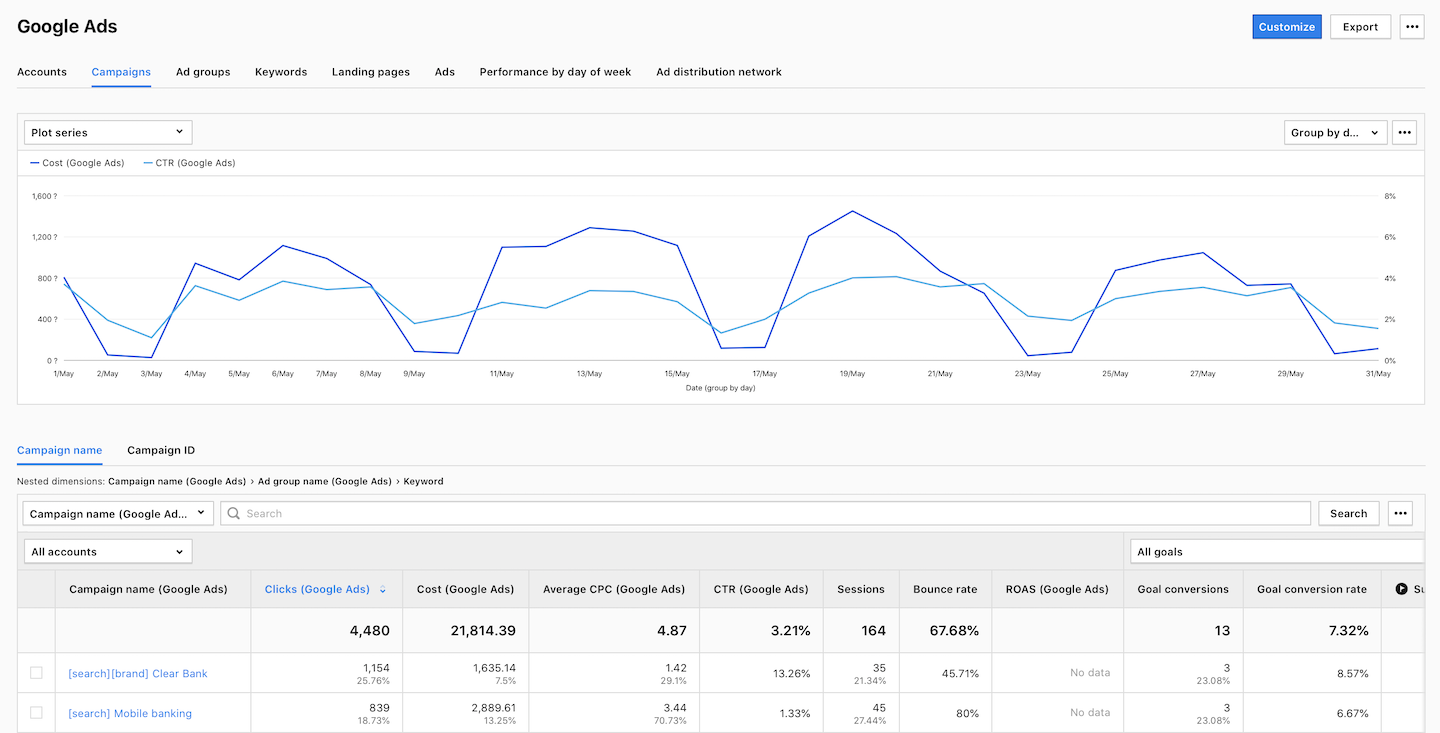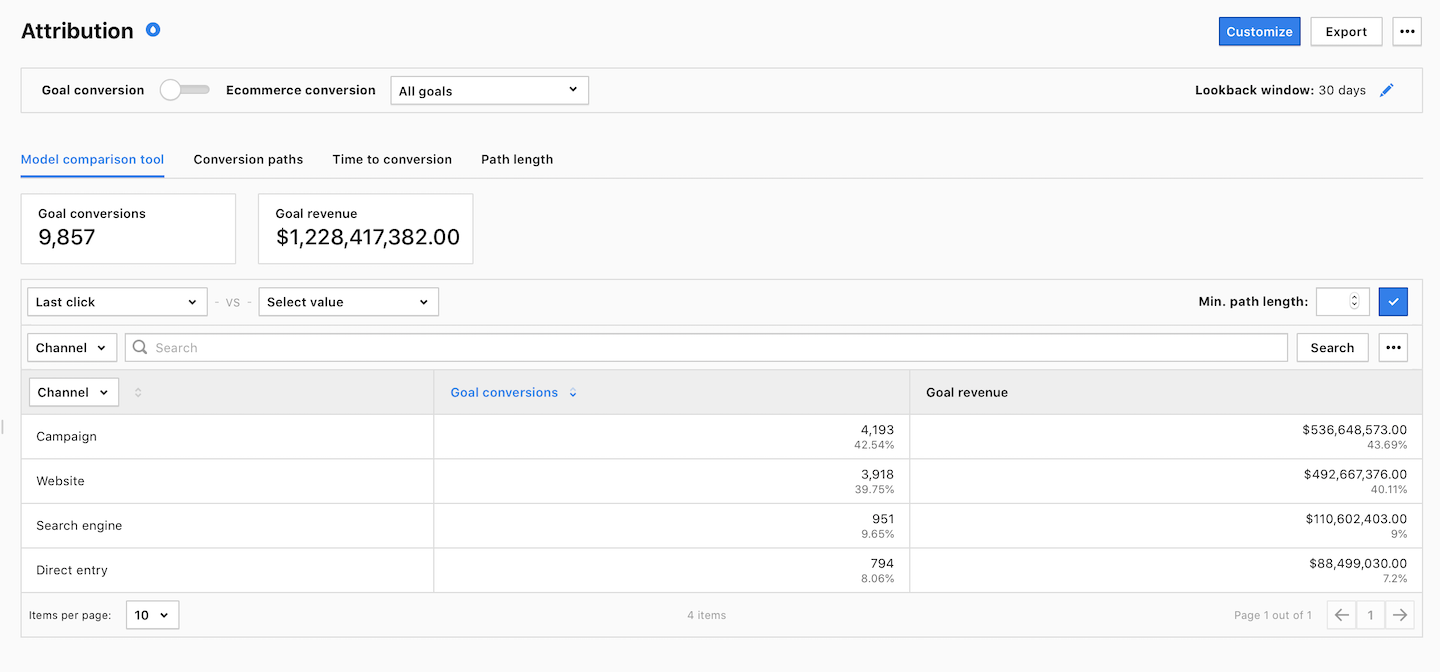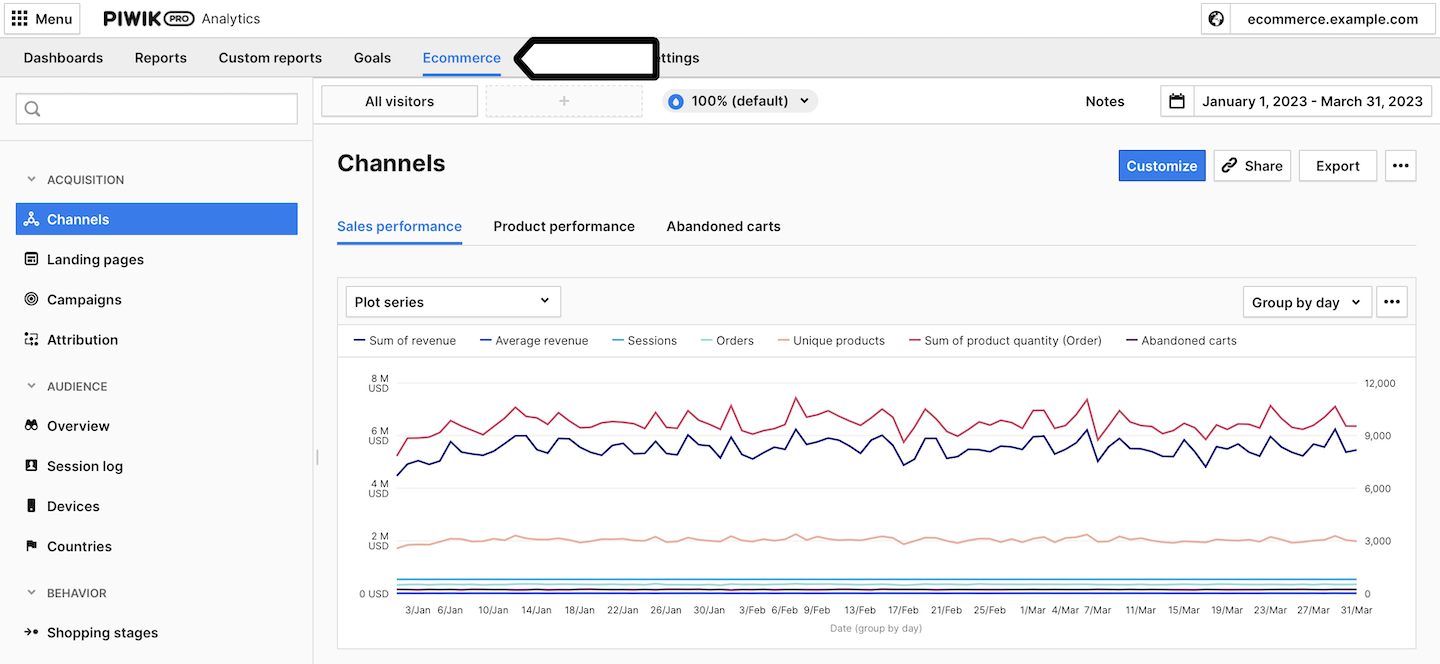As a part of our masterclass for marketers series, organized in collaboration with Timo Dechau from deepskydata, our experts dive into the topic of ecommerce analytics.
Juliana Jackson, a technical marketing expert, explains how advanced analytics features can help make better business decisions and strengthen sales growth. She emphasizes that while the purchase funnel is vital for generating revenue, it merely scratches the surface. To truly flourish, companies must benefit from the holistic customer journey.
Let’s discover our expert’s key tips for improving your ecommerce analytics.
The complete Piwik PRO Shopify app playbook
Tap into advanced analytics and a built-in customer data platform (CDP) to improve your Shopify store’s performance. This playbook offers actionable strategies, real-world examples, and step-by-step instructions to help you grow your business while staying compliant with global privacy laws.
Understand your customer journey
As the traditional linear funnel approach to customer journey is being challenged, the concept of a holistic customer journey sheds light on the complex and diverse ways customers engage with brands. It emphasizes the need for a multifaceted approach to measure their behavior.
A holistic customer journey is the first step before we do any analysis. It’s not just saying how many clicks it needs for someone to convert on a website, but it’s about looking at the whole picture.
Timo Dechau, Founder of deepskydata
One of the main focuses of this holistic perspective is an emphasis on the early awareness metric. Time spent on a website becomes a crucial indicator of engagement, challenging the conventional funnel. Page engagement metrics take center stage in unraveling the user’s journey, helping identify where the purchasing process typically begins, whether on category pages, product pages, or elsewhere. Also, all metrics should be revised to tell a meaningful story instead of just being numbers on a dashboard.
The holistic customer journey involves asking fundamental business questions:
- How do users find the website? Through campaigns, organic search, or paid search?
- How long do they spend on the website? An average engagement time of 1 to 3 minutes may indicate their intent to explore the page further or make a purchase.
Understanding users’ initial actions on the website and identifying the most engaging pages provides insights into what content users find interesting. Knowing where the purchasing journey starts becomes instrumental in shaping strategies to enhance user experience and drive conversions.
A nice aspect of the ecommerce funnel is knowing what pages people viewed until they moved further because it gives you a bit more context. You want to understand what content they engage with on your website before they ultimately make the purchasing decision.
Juliana Jackson, Technical marketing expert
A closer look at the three steps of the customer journey (ability, motivation, and friction) makes it evident that the success of your ecommerce analytics relies on simultaneously reducing friction points and increasing the customer’s motivation. This three-step approach extends the relevance beyond the traditional sales funnel into the broader customer journey landscape. Navigating this landscape requires understanding metrics and embracing the complexity and diversity inherent in the modern customer’s digital journey.
Currency conversion
With Piwik PRO’s new Currency Conversions feature, businesses can unify revenue data from multiple currencies into a single standard currency. This consolidation ensures accurate financial analysis across diverse markets, enhancing understanding global customer behavior. Learn more in our article.
Custom ecommerce metrics and reports in Piwik PRO Analytics Suite
Adjusting metrics to meet specific business needs requires a more personalized approach. Critical thinking and simplicity in ecommerce analytics are essential elements in the fast-paced ecommerce landscape. The introduction of calculated metrics, such as average order value (AOV), demonstrates the adaptability offered by tools like Piwik PRO Analytics Suite. In our analytics platform, creating custom metrics involves selecting relevant parameters and defining aggregation methods, providing businesses with a customized approach to data analysis.
The exploration of the customer journey, segmented into awareness, consideration, and intent stages, highlights key metrics such as sessions, visitors, average engagement time, and click-through rates (CTR). Piwik PRO’s versatility is showcased through diverse applications, from calculating the cost per lead (CPL) for Google Ads campaigns to accommodating commissions for partner referrals.

The role of attribution in ecommerce analytics
Attribution is the backbone of understanding customer journeys in ecommerce analytics that decodes the complex path from awareness to conversion.
Let’s take such a scenario. A potential customer interacts with a Facebook ad, explores the online store, and leaves without making a purchase. Later, they return via a Google search, clicking on the brand name and eventually converting. The dilemma arises when both Facebook and Google claim credit for the same revenue, leading to potential double-counting.
This is where the concept of attribution steps in, providing a centralized system to make informed decisions. Different attribution models are used depending on how revenue is distributed among touchpoints. The first-click scenario, for instance, attributes the entire revenue to the first touchpoint, while other models distribute it based on a combination of first and last clicks.

The availability of multiple attribution models adds a layer of flexibility. The ability to choose models based on specific business needs empowers businesses to tailor their attribution approach, considering factors like the importance of the first or last touchpoint in the customer journey.
Despite its imperfections, attribution is considered a significant achievement, making it accessible to a broader audience. Businesses can utilize attribution reports not just for revenue allocation but as a tool for understanding the impact of touchpoints on diverse conversion paths.
Unlock the power of your Shopify store with Piwik PRO
Drive smarter decisions with Piwik PRO’s Shopify app. Track customer behavior, product interactions, and sales performance with ease, without the hassle.
The app simplifies setup, ensures GDPR-compliant data collection, and integrates seamlessly with your Shopify store. Gain valuable insights that help you optimize your ecommerce business and stay ahead of the competition.
Benefits of collaboration between marketing and product teams
Another game-changer in ecommerce analytics is a balanced collaboration between marketing and product teams. Its core lies in both teams’ ability to analyze data signals and comprehend customer behavior.
The example of tailoring reports for the product team is the importance of actionable insights. Key elements such as product pages, cart abandonment, and product performance over time become focal points, empowering the product team with tailored analytics.

As for marketing teams, creating customized reports using an explorer table is crucial in showcasing the flexibility and ease of customization. The ability to dive into channels and metrics offers marketing teams a comprehensive view of their efforts. Metrics like average and median session time are highlighted for their significance in understanding user behavior and identifying anomalies in data tracking setups.
Custom metrics are essential to successful collaboration between marketing and product teams. They give both teams control over the metrics and dimensions that most matter to them, emerging as powerful tools for informed decision-making and navigating the complexities of ecommerce analytics effectively.
Timo Dechau, Founder of deepskydata
A holistic customer journey is the key to effective ecommerce analytics
Businesses should move beyond generic analytics tools for their ecommerce analytics, focusing on critical thinking, simplicity, and the adaptability of tools like Piwik PRO. Custom metrics emerge as a powerful resource, offering businesses actionable insights and a deeper understanding of their unique customer journeys.
For more details into ecommerce analytics in Piwik PRO Analytics Suite, watch the full episode of our masterclass












